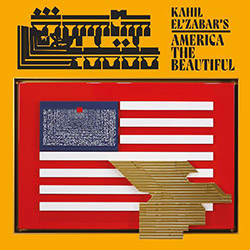
Chicago multi-percussionist Kahil El'Zabar composes, arranges and conducts a tour de force musical testament to speak about the turbulent issues in America and the world today, as well as his hopes and love for a better tomorrow, in a 12-piece ensemble including Hamiet Bluiett, Tomeka Reid, Corey Wilkes, Dennis Winslett, and the James Sanders String Quartet.
Out of Stock
Quantity in Basket: None
Log In to use our Wish List
Shipping Weight: 3.00 units
Sample The Album:
Kahil El'Zabar-composition, arrangements, conduction, multi percussion, flute
Corey Wilkes-trumpet
Hamiet Bluiett-baritone saxophone
Tomeka Reid-cello
Dennis Winslett-alto saxophone
Samuel Williams-violin
James Sanders String Quartet-quartet
Joshua Ramos-acoustic bass
Miguel de la Cerna-keyboard
Babu Atiba-African percussion
Ernie Adams-percussion
Robert Irving III-piano
Click an artist name above to see in-stock items for that artist.
UPC: 634457031609
Label: Spiritmuse Records
Catalog ID: CD-KEZ-005X
Squidco Product Code: 29711
Format: CD
Condition: New
Released: 2020
Country: UK
Packaging: Digipack
No recording data listed.
"The Chicago percussionist, bandleader, and composer offers a moving, frequently ebullient album that doesn't shy away from the terrors of America's past and present while managing, somewhat incredibly, to find hope in the country's future.
Russian composer Igor Stravinsky was an American when he rearranged the "Star-Spangled Banner." He had left Paris in 1939 and was in the process of establishing residency in the U.S. when he decided to put his spin on the national anthem of his new country, where he would end up living for the rest of his life. His 1941 arrangement of the "Star-Spangled Banner"-which landed him in mild trouble with the Boston police-premiered in the early days of World War II. It keeps the melody intact, but he shades it with subtle blue harmonies that tweak the song's strident sense of empowerment, rounding into a finale that, while still triumphant, is somewhat cracked. America, in Stravinsky's telling, is weaker than it insists, but it still has the capacity for good. It takes less than 15 seconds with Kahil El'Zabar's America the Beautiful to understand that he feels the exact same way.
The Chicago percussionist, bandleader, and composer came up through the influential Association for the Advancement of Creative Musicians, serving as its chairman from 1975 to 1983, and he would go on to play with everyone from Pharoah Sanders and Archie Shepp to Dizzy Gillespie and Cannonball Adderley. America the Beautiful, his second album of 2020-following June's excellent Spirit Groove-is built around his rearrangement of the hallowed title track. It's a moving, frequently ebullient album that doesn't shy away from the terrors of America's past and present while managing, somewhat incredibly, to find hope in the country's future.
For El'Zabar, "America" begins with the drum. Specifically, the hand-pounded pulse of an African drum that sets the pace for his ensemble, which includes trumpeter Corey Wilkes, cellist Tomeka Reid, and the late baritone saxophonist Hamiet Bluiett, who makes his final recorded appearance here. They set the familiar melody into place, but they immediately saw holes in its bright optimism with uneven, uncomfortable harmonies. The symbolism is obvious, but no less moving for it: the notion of America's beauty has been wounded, but crucially, it's still afloat. Like John Coltrane's quartet expanding the boundaries of Rodgers and Hammerstein's "My Favorite Things," the ensemble takes us far away from the song's founding idea, only to return to it with a refreshed vision. That the melody is muddier and more difficult to make out when the group states it again near the end of the song is only part of the point; one gets the sense that, for El'Zabar, what matters most is that it persists.Trending NowViolent Femmes Rate Banjos, Curly Fries, and Therapy Animals
"America the Beautiful" isn't the only standard El'Zabar reconstructs. Mongo Santamaria's "Afro Blue," here titled "Sketches of an Afro Blue," is heralded by the string section, who recite the melody as if they're making a dire announcement. The percussion nearly goes out of sync, wobbling on the edge of phasing out and keeping things from getting too comfortable, while Reid flies all over her cello's fingerboard, spraying notes and nearly gasping into harmonics. There's a relentless emotional heaviness to El'Zabar's composition that's virtually invisible in the original. Their take on Charles Wright and the Watts 103rd Street Rhythm Band's canonical "Express Yourself," however, explodes like a box of compressed sunshine. While Bluiett's baritone puckers and shouts, Reid and violinist Samuel Williams saw at the rhythm like they're playing with a string band, connecting a timeless anthem of Black joy to music being made by Black people in this country over a hundred years ago.
But El'Zabar's intermixing of brightness and lamentation is at its best in the original "Freedom March." An eight-minute showcase for Bluiett, it unwinds slowly, sounding like both halves of a jazz funeral happening at the same time, the dirge and the celebration coexisting in a way that's coherent, but not easy. Bluiett struts alongside the ensemble as they make their way through the tune, punching out deep runs with a chortle and pinching into a high scream. He's all over the place: He beckons from an adjacent alleyway, then falls into place and plays alongside his bandmates for a few moments before growing restless and popping back out again. Taken together, it all suggests that the titular freedom means not only the freedom of expression, but the freedom to keep marching, to keep pushing, to find within confusion and anger-and joy and beauty-the raw materials needed to build something new.
Which makes the drum that kicks off the album feel even more auspicious. Throughout America the Beautiful's frenetic explorations, it's the percussion that keeps the ensemble grounded. El'Zabar, who performs most of it, plays in a way that's intricate and complex, lacing together a number of interwoven sounds sourced from African music, Latin jazz, and funk. At times it feels like an argument for Black culture as both a consistent force in this country and a rebuke to the chaotic excesses of white supremacy's most demonstrative displays of power. If we understand the word "politics" to mean the way we organize our mutual action, this is explicitly political music: "Now's the time for us to collectively invoke a confluence of trust and imagination that will enlighten a future path towards ethical humanity," El'Zabar writes in the album's statement of purpose. It seems strange, in the waning months of 2020, to hear someone express hope for our country's future-to suggest that anything like "ethical humanity" is still possible on a societal level. But then again, Americans have been guiding their country toward the light since the days of its broken birth. Most just weren't called "American" at the time."-Marty Sartini Garner, Pitchfork Media
Get additional information at Pitchfork Media
Artist Biographies
• Show Bio for Kahil El'Zabar "Musician Kahil El'Zabar was born in Chicago, on November 11, 1953. One of three children growing up in a South Side neighborhood, El'Zabar fell in love with the myriad sounds of the city, from doo-wop to jazz. After attending Catholic schools in Chicago, El'Zabar went to Kennedy-King College and later to Malcolm X and Lake Forest colleges. In 1973, he traveled to Africa to attend the University of Ghana and study African music firsthand. El'Zabar began studying African music at an early age, taking a special interest in drumming. At the age of eighteen, he joined Chicago's Association for the Advancement of Creative Musicians, and by 1975 he was chairman of the organization. During the early 1970s, El'Zabar also formed his own musical group, the Ethnic Heritage Ensemble, and later another group, Ritual Trio, with which he still performs. His musical abilities have allowed him to play with such greats at Stevie Wonder, Paul Simon and Nina Simone, and he has toured the world with both his own groups and others. El'Zabar is active in more than just music, however. He has appeared in several films, including Mo' Money, How U Like Me Now and The Last Set. From 1996 to 1999, El'Zabar organized Traffic at Chicago's Steppenwolf Theatre, an inter-arts program featuring music and poetry. El'Zabar has also served as an associate professor at the University of Nebraska at Lincoln and the University of Illinois at Chicago. He has published a book, Mis'taken Brilliance, and tailors clothing both for his band and for others. He is active on the boards of several organizations, including serving as the chairman of The Sun Drummer, an African American drum society, and on the board of directors of the National Campaign for Freedom of Expression. El'Zabar lives in Chicago. He has six children." ^ Hide Bio for Kahil El'Zabar • Show Bio for Corey Wilkes "Corey Wilkes has established himself as one of the best improvising trumpeters in the modern era. Having the skill and maturity to approach mainstream repertoire of jazz standards with his own unique sensibilities, he combines them with his deep appreciation of hip-hop. Corey continues to bring his brand of musicianship and talent to the forefront of the genre. As a child, growing up in the suburbs of Chicago, Wilkes was surrounded by the sounds of Blues, R&B, Soul, Funk and Jazz. He picked up the trumpet for the first time at the age of 10 participating in his school band programs. Corey's natural talent immediately began to flourish. His confidence and maturity were well beyond his years. As a student at Rich South High School in Richton Park, Illinois, his hard work and dedication secured him a spot in the Illinois All State Honors Jazz Combo; the first student in the school's history to do so. Corey has also shared the stage with numerous Jazz Masters including but not limited to; Wynton Marsalis, Roy Hargrove, James Moody, Kurt Elling, Von Freeman, Greg Osby, Roscoe Mitchell, Marcus Belgrave, Clark Terry, Harry "Sweets" Edison and Mulgrew Miller. His soulful notes can be heard gracing a variety of contemporary projects including sets by DJ Logic, Osunlade and Josh Deep; tracks on Hidden Beach Recordings Presents: Unwrapped Vol. 4, Kahil El Zabar's Ascension Loft Series as well as Nona Hendryx, Soulive, Meshell Ndegocello and Ledisi." ^ Hide Bio for Corey Wilkes • Show Bio for Hamiet Bluiett "Hamiet Bluiett (born September 16, 1940, Brooklyn, or Lovejoy, Illinois; surname pronounced BLUE-ett) is an American jazz saxophonist, clarinetist, and composer. His primary instrument is the baritone saxophone, and he is considered one of the finest living players of this instrument. A member of the World Saxophone Quartet, he also plays (and records with) the bass saxophone, E-flat alto clarinet, E-flat contra-alto clarinet, and wooden flute. Bluiett was born just north of East St. Louis in Brooklyn, Illinois (also known as Lovejoy), a predominantly African-American village that had been founded as a free black refuge community in the 1830s, and which later became America's first majority-black town. As a child, he studied piano, trumpet, and clarinet, but was attracted most strongly to the baritone saxophone from the age of ten. He began his musical career by playing the clarinet for barrelhouse dances in Brooklyn, Illinois, before joining the Navy band in 1961. He attended Southern Illinois University Carbondale. In his mid-twenties, Bluiett heard Harry Carney (the baritone player in the Duke Ellington band) play in a live concert in Boston, which also made a strong impression on the young Bluiett, providing an example of a baritone saxophonist who played as soloist rather than accompanist. Following his time in the Navy, he returned to the St. Louis area in the mid-1960s. In the late 1960s Bluiett co-founded the Black Artists' Group (BAG) of St. Louis, Missouri, a collective dedicated to fostering creative work in theater, visual arts, dance, poetry, film, and music. He led the BAG big band during 1968 and 1969. Bluiett moved to New York City in the fall of 1969, where he joined the Charles Mingus Quintet and the Sam Rivers large ensemble. In 1976 he co-founded the World Saxophone Quartet along with two other Black Artists' Group members, Julius Hemphill and Oliver Lake, as well as multi-reedist David Murray. He has remained a champion of the somewhat unwieldy baritone saxophone, organizing large groups of baritone saxophones. Since the 1990s Bluiett has led a virtuosic quartet, the Bluiett Baritone Nation, made up entirely of baritone saxophones, with drum set accompaniment. In the 1980s, he also founded the Clarinet Family, a group of eight clarinetists playing clarinets of various sizes ranging from E-flat soprano to contrabass. Bluiett has also worked with Sam Rivers, Babatunde Olatunji, Abdullah Ibrahim, Stevie Wonder, and Marvin Gaye. He returned to his hometown of Brooklyn, Illinois, in 2002 but moved back to New York City in 2012. He currently performs at gigs, including the New Haven Jazz Festival on August 22, 2009. He performed with students from Neighborhood Music School in New Haven, CT. The group were known as Hamiet Bluiett and the Improvisational Youth Orchestra." ^ Hide Bio for Hamiet Bluiett • Show Bio for Tomeka Reid "Chicago based cellist, composer and educator, Tomeka Reid has been described as "a remarkably versatile player," (Howard Reich, Chicago Tribune). Equally adept in classical and jazz contexts, Ms. Reid predominantly finds herself in experimental and improvisatory settings and composes for a wide range of instrumentation, from big band to chamber ensemble. Ms. Reid's music combines her love for groove along with freer concepts. Ms. Reid is an integral part of Dee Alexander's Evolution Ensemble, Nicole Mitchell's Black Earth Ensemble/Strings, Mike Reed's Loose Assembly, the Association for the Advancement of Creative Musicians (AACM) Great Black Music Ensemble, and co-leads the internationally recognized string trio, Hear in Now with performances in Poznan, Poland; Paris, France; Rome, Venice, Milan, Italy; Soazza, Switzerland; and in the US: Chicago, New York and Vermont. In addition to the aforementioned ensembles, Ms. Reid performs with many of today's forward thinking musicians in the world of jazz and creative music including Anthony Braxton, George Lewis, Roscoe Mitchell, Jeb Bishop, Myra Melford, Fred Lonberg-Holm, Mary Halvorson, Denis Fournier, Edward Wilkerson and Harrison Bankhead. Ms. Reid also leads her own trio featuring guitarist Matt Schneider and bassist Josh Abrams, for which she composes. Ms. Reid can be heard on numerous studio recordings. As an educator, Ms. Reid has led string improvisation workshops in Italy and the US. Most recently she co-directed the 2012 Vancouver Jazz Festival’s High School Jazz Intensive. For seven years, Ms. Reid co-directed the string program at the University of Chicago’s Laboratory School for students grade 5 thru 12. Ms. Reid is also an ABD doctoral candidate at the University of Illinois: Urbana-Champaign. As a composer, Ms. Reid has been commissioned by the AACM, the Chicago Jazz Festival and the Chicago Jazz Ensemble and has had several opportunities to showcase her work abroad at festivals such as Umbria Jazz, An Insolent Noise and Vignola Jazz. She has been nominated and awarded residencies for composition with the Ragdale Foundation and the 2nd Annual Make Jazz Fellowship hosted by the 18th Street Arts Organization. Ms. Reid was selected as a 2012 participant in the Jazz Composers Orchestra Institute held at the University of California: Los Angeles." ^ Hide Bio for Tomeka Reid • Show Bio for Babu Atiba Babu Atiba is a Chicago drummer and percusionist. He has played the african drums for almost 50 years and also co-founded the Muntu Dance Theatre in Chicago, Ill. Atibais also an educator on the drums. He has performed with Famoudou Don Moye & Enoch Williamson, Sun Percussion Summit & More, Kahil El'Zabar, and Art Ensemble Of Chicago. ^ Hide Bio for Babu Atiba
11/20/2024
Have a better biography or biography source? Please Contact Us so that we can update this biography.
11/20/2024
Have a better biography or biography source? Please Contact Us so that we can update this biography.
11/20/2024
Have a better biography or biography source? Please Contact Us so that we can update this biography.
11/20/2024
Have a better biography or biography source? Please Contact Us so that we can update this biography.
Have a better biography or biography source? Please Contact Us so that we can update this biography.
Track Listing:
1. America The Beautiful (Instrumental) 2:25
2. Jump And Shout (For Those Now Gone) 6:37
3. Express Yourself 3:57
4. Freedom March 8:14
5. Sketches Of An Afro Blue 8:16
6. How Can We Mend A Broken Heart 4:09
7. That We Ask Of Our Creator 4:30
8. Prayers For The Unwarranted Sufferings 4:15
9. America The Beautiful 2:05
Improvised Music
Jazz
Free Improvisation
Chicago Jazz & Improvisation
Large Ensembles
Staff Picks & Recommended Items
Search for other titles on the label:
Spiritmuse Records.


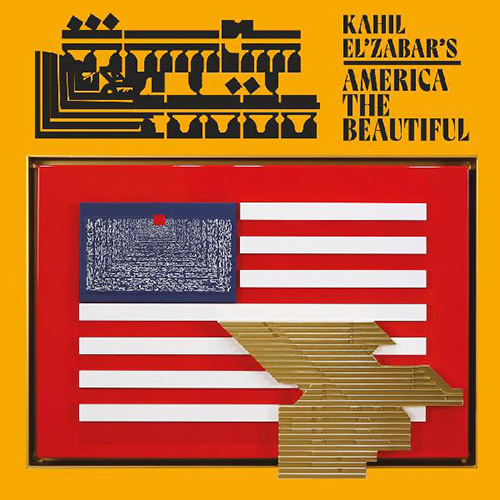
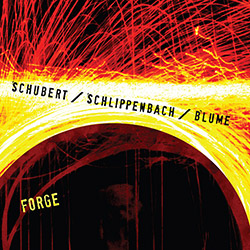
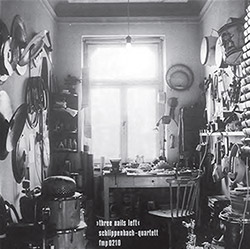

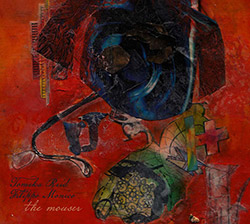

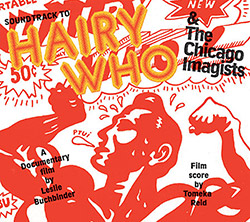
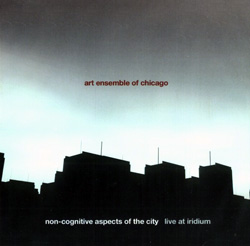

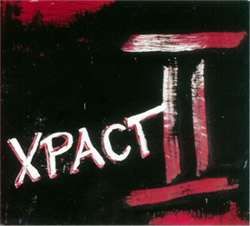
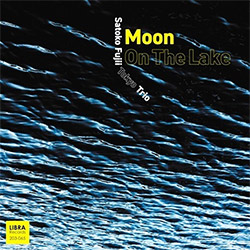
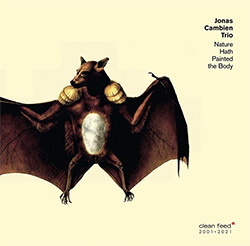
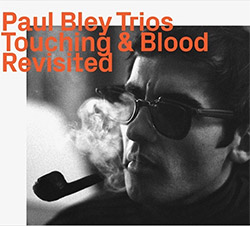

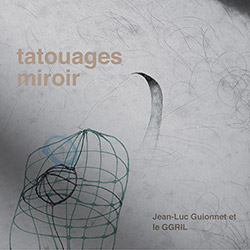
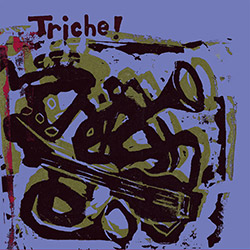
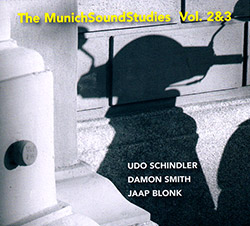


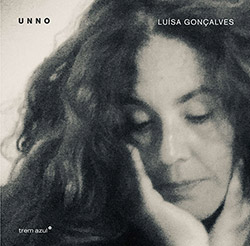
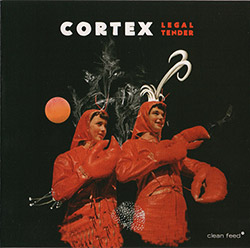
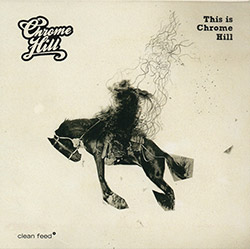
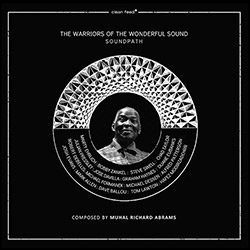
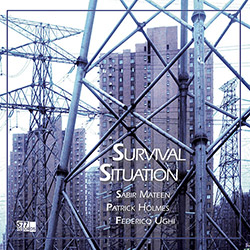


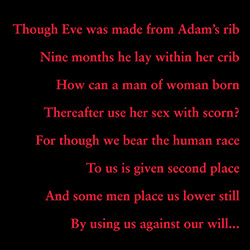


![Guy, Barry / Ken Vandermark: Occasional Poems [2 CDs]](https://www.teuthida.com/productImages/misc4/34849.jpg)
![Novoa / Carter / Mela Trio: Vol.1 [VINYL]](https://www.teuthida.com/productImages/misc4/35236.jpg)


![Elephant9 : Mythical River [VINYL]](https://www.teuthida.com/productImages/misc4/34624.jpg)
![Evans, Peter (Evans / Eldh / Black): Extra [VINYL]](https://www.teuthida.com/productImages/misc4/35279.jpg)

![McPhee, Joe: Straight Up, Without Wings [BOOK]](https://www.teuthida.com/productImages/misc4/35454.jpg)
![Jeck, Philip: rpm [2 CDs]](https://www.teuthida.com/productImages/misc4/35455.jpg)













![Barker / Parker / Irabagon: Bakunawa [VINYL]](https://www.teuthida.com/productImages/misc4/35533.jpg)
![Blaser, Samuel / Marc Ducret / Peter Bruun: Dark Was The Night, Cold Was The Ground [VINYL 10-inch]](https://www.teuthida.com/productImages/misc4/35492.jpg)








![Warren, Kenny (Warren / Hoffman / Ellman): Sweet World [VINYL]](https://www.teuthida.com/productImages/misc4/35451.jpg)




![Blake, Ran / Dave Knife Fabris: Live Amsterdam 2006, First Visit [CD + POSTCARDS]](https://www.teuthida.com/productImages/misc4/35275.jpg)













![DNS: Taking Big Bites Of The Khandas Three Cafes Deep [2 CDs]](https://www.teuthida.com/productImages/misc4/35334.jpg)




![Cleaver, Gerald: The Process [VINYL]](https://www.teuthida.com/productImages/misc4/34966.jpg)




![Alva Noto: HYbr:ID II [VINYL 2 LPs]](https://www.teuthida.com/productImages/misc4/35201.jpg)

![Baron, Derek / Luke Martin: Distinct and Concealed [CASSETTE + DOWNLOAD]](https://www.teuthida.com/productImages/misc4/35079.jpg)

![Lyle, Erica Dawn : Colonial Motels [CASSETTE + DOWNLOAD]](https://www.teuthida.com/productImages/misc4/35080.jpg)









![Sanna, Claudio: Compositori Sardi Contemporanei II [2 CDs]](https://www.teuthida.com/productImages/misc4/35317.jpg)







![Zurria, Manuel: Fame di Vento [3 CDs]](https://www.teuthida.com/productImages/misc4/35167.jpg)

![Granberg, Magnus / Nattens Inbrott / Skogen: Holde Traume, Kehret Wieder! [2 CDs]](https://www.teuthida.com/productImages/misc4/35038.jpg)
![Frey, Jurg: Outermost Melodie [2 CDs]](https://www.teuthida.com/productImages/misc4/35039.jpg)

![Pavone, Jessica: Reverse Bloom [VINYL]](https://www.teuthida.com/productImages/misc4/34895.jpg)




![Modney (Modney / Wooley / Gentile / Roberts / Pluta / Symthe / ...): Ascending Primes [2 CDs]](https://www.teuthida.com/productImages/misc4/34852.jpg)









![Elephant9 with Terje Rypdal: Catching Fire [VINYL 2 LPs]](https://www.teuthida.com/productImages/misc4/35355.jpg)
![Deerlady (Obomsawin, Mali / Magdalena Abrego): Greatest Hits [VINYL]](https://www.teuthida.com/productImages/misc4/34876.jpg)




![Haino, Keiji: Black Blues [2 CDs]](https://www.teuthida.com/productImages/misc4/35109.jpg)



![Surplus 1980: Illusion of Consistency [CD]](https://www.teuthida.com/productImages/misc4/35069.jpg)
![Staiano, Moe: Away Towards the Light [VINYL + DOWNLOAD]](https://www.teuthida.com/productImages/misc4/35037.jpg)



![Caveira (Gomes / Sousa / Abras / Ferrandini): Ficar Vivo [VINYL]](https://www.teuthida.com/productImages/misc4/34643.jpg)
![Gregg, J. J. / David Van Auken: Lunar Prairie [CD w/ DOWNLOAD]](https://www.teuthida.com/productImages/misc4/34611.jpg)

![Coultrain: Mundus [VINYL]](https://www.teuthida.com/productImages/misc4/32439.jpg)
![Mattin: Songbook #6 [VINYL]](https://www.teuthida.com/productImages/misc4/27317.jpg)
![Punkappella: Wake Up [7-inch VINYL]](https://www.teuthida.com/productImages/misc4/17519.jpg)
![Residents, The: WARNING: UNiNC.: Live And Experimental Recordings 1971-1972 [VINYL 2 LPs]](https://www.teuthida.com/productImages/misc4/31521.jpg)
![Coultrain: Phantasmagoria [VINYL]](https://www.teuthida.com/productImages/misc4/30142.jpg)
![Lennon, Sean Ono: Asterisms [VINYL]](https://www.teuthida.com/productImages/misc4/34517.jpg)

![Coley, Byron: Dating Tips for Touring Bands [VINYL]](https://www.teuthida.com/productImages/misc4/17906.jpg)

![Lost Kisses: My Life is Sad & Funny [DVD]](https://www.teuthida.com/productImages/misc4/lostKissesDVD.jpg)